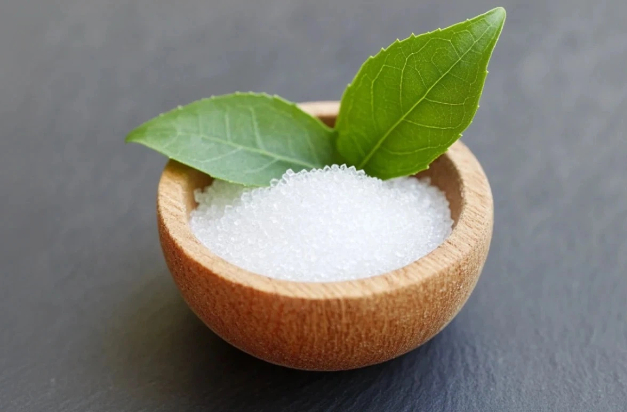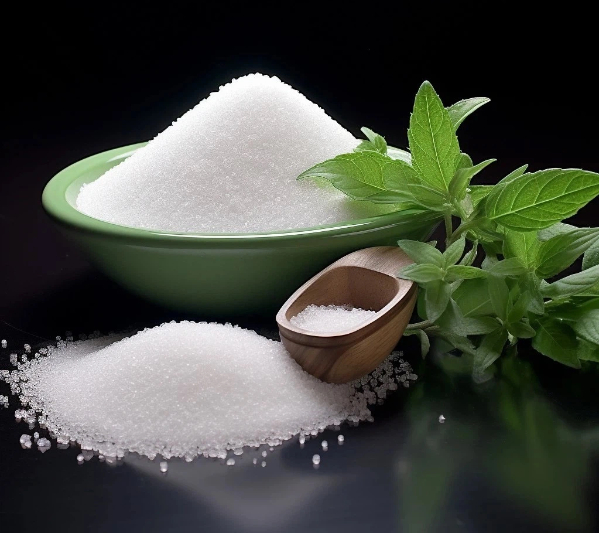







Content Menu
● How Does Stevia Affect Energy Levels?
>> Indirect Energy Effects of Stevia
● Health Benefits of Stevia Beyond Sweetening
>> Potential Antihypertensive Effects
● Scientific Studies on Stevia and Energy
● Common Uses of Stevia in Food and Beverages
● Incorporating Stevia Into Your Diet for Better Energy
● Stevia vs. Other Sweeteners: Which Is Better for Energy?
● Tips for Choosing Stevia Products
● Potential Side Effects of Stevia
● Frequently Asked Questions (FAQ)
>> 1. Does Stevia contain calories or provide energy?
>> 2. Can Stevia affect my blood sugar levels?
>> 3. Is Stevia safe for daily consumption?
>> 4. How does Stevia compare to sugar regarding energy?
>> 5. Can Stevia help with weight management?
Stevia, a natural sweetener derived from the leaves of the Stevia rebaudiana plant, has gained immense popularity as a sugar substitute. Known for its low-calorie content and intense sweetness, Stevia is widely used in food, beverages, and dietary supplements. But a common question among consumers is: does Stevia give you energy? This article explores the relationship between Stevia and energy levels, its benefits, scientific insights, and practical uses.

Stevia is a natural, zero-calorie sweetener extracted from the leaves of the Stevia plant. It is intensely sweet—up to 200-300 times sweeter than sugar—but does not contribute calories or carbohydrates. This makes it a popular choice for those managing weight, diabetes, or seeking to reduce sugar intake.
Unlike sugar, Stevia itself contains no calories, which means it does not directly provide a source of energy. Typically, human energy comes from carbohydrates, fats, and proteins in the diet. Sugar provides quick energy by being metabolized into glucose, the body's primary fuel. Stevia, however, bypasses this process as it contains no glucose or digestible carbohydrates.
Though Stevia provides no calories, it may contribute indirectly to balanced energy levels:
- Blood Sugar Regulation: Studies suggest Stevia can help regulate blood glucose, avoiding the spikes and crashes associated with sugar consumption. Stable glucose levels translate to more consistent energy throughout the day.
- Weight Management: With zero calories, Stevia aids in reducing total sugar intake, potentially preventing energy slumps caused by excessive calorie consumption and subsequent insulin responses.
- Improved Digestion: Some evidence indicates that Stevia may support gut health by promoting beneficial bacteria, which can have positive effects on nutrient absorption and overall energy metabolism.
Stevia contains antioxidants that combat oxidative stress, which can otherwise reduce cellular energy production and cause fatigue. Antioxidants protect cells from damage caused by free radicals, thereby helping the body maintain vitality and endurance.
Research indicates that Stevia may help lower blood pressure, indirectly benefiting cardiovascular health and sustaining better oxygen and nutrient delivery—key for maintaining energy.
Some studies have identified anti-inflammatory compounds in Stevia that may lessen chronic inflammation, a condition linked to fatigue and low energy. By reducing inflammation, Stevia could support increased overall energy levels.

While direct studies on Stevia's effect on energy are limited, research on metabolic health provides useful insights:
- A study in the Journal of Nutrition noted that Stevia consumption did not cause blood sugar spikes, which often lead to rapid energy dips after sugary foods.
- Research published in Appetite showed that participants consuming Stevia-sweetened beverages reported fewer hunger cravings, which can help maintain steady energy by avoiding overeating.
- Animal studies have suggested Stevia extract might enhance glucose metabolism efficiency, although more human trials are needed.
Stevia is used in:
- Natural sweeteners for beverages like tea, coffee, and soft drinks.
- Sugar-free candies, gums, and chocolates.
- Dietary supplements and functional foods designed to provide health benefits without added calories.
- Baked goods, where Stevia serves as a sugar alternative without compromising sweetness or flavor.
- Replace sugar with Stevia in beverages and recipes to avoid energy crashes caused by unstable blood sugar.
- Use Stevia in moderation to tailor sweetness according to personal taste and to complement a balanced diet.
- Combine Stevia-sweetened foods with fiber and protein-rich meals to support lasting energy release.
- Try Stevia-based sports nutrition products that aim to provide sweetness without calories, helping athletes maintain energy without sugar-induced swings.
| Sweetener | Calories | Effect on Blood Sugar | Energy Impact |
|---|---|---|---|
| Sugar | High | Raises glucose levels | Quick energy spike and drop |
| Stevia | Zero | Does not raise glucose | No direct energy; stable |
| Sucralose | Zero | No glucose impact | No direct energy |
| Honey | Moderate | Raises glucose | Provides some energy |
| Aspartame | Zero | Minimal effect | No direct energy |
Not all Stevia products are created equal. Here are some tips to choose quality Stevia-based sweeteners:
- Look for products with pure Stevia leaf extract or Reb-A (Rebaudioside A), which offers a clean, sweet taste.
- Avoid Stevia blends with added sugar alcohols or fillers that may cause digestive discomfort.
- Choose certified organic or non-GMO labels for higher quality assurance.
- Check for product approvals by food safety authorities such as the FDA or EFSA.
Stevia is generally recognized as safe, but some individuals may experience:
- Mild digestive discomfort or bloating when consumed in large amounts.
- Allergic reactions (rare).
- Possible drug interactions, particularly with medications for blood pressure or blood sugar control.
Consult a healthcare provider if you have concerns or underlying conditions.
Stevia does not give you energy in the traditional sense because it contains no calories or carbohydrates. However, it plays a valuable role in energy management by helping regulate blood sugar and preventing energy spikes and crashes commonly caused by sugar consumption. In addition to its sweetening properties, Stevia offers antioxidant, anti-inflammatory, and potential cardiovascular benefits that contribute indirectly to maintaining balanced energy levels. Incorporating Stevia into your diet can support sustained energy, especially when combined with a balanced lifestyle and proper nutrition.

No, Stevia is a zero-calorie sweetener and does not provide energy directly.
Stevia does not raise blood sugar levels and may help regulate them, making it a good option for people with diabetes.
Yes, Stevia is generally safe for daily use, though some people may experience mild side effects. Consult your doctor if you have health concerns.
Sugar provides quick energy by raising blood glucose but causes energy crashes. Stevia does not affect blood glucose and supports more stable energy.
Yes, by replacing sugar with Stevia, you can reduce calorie intake, which may aid in weight management and help maintain sustained energy levels.
